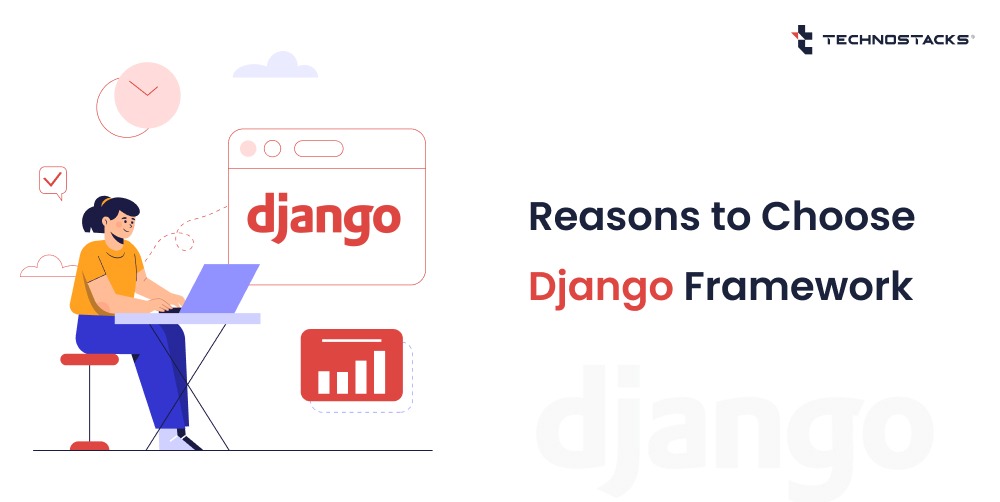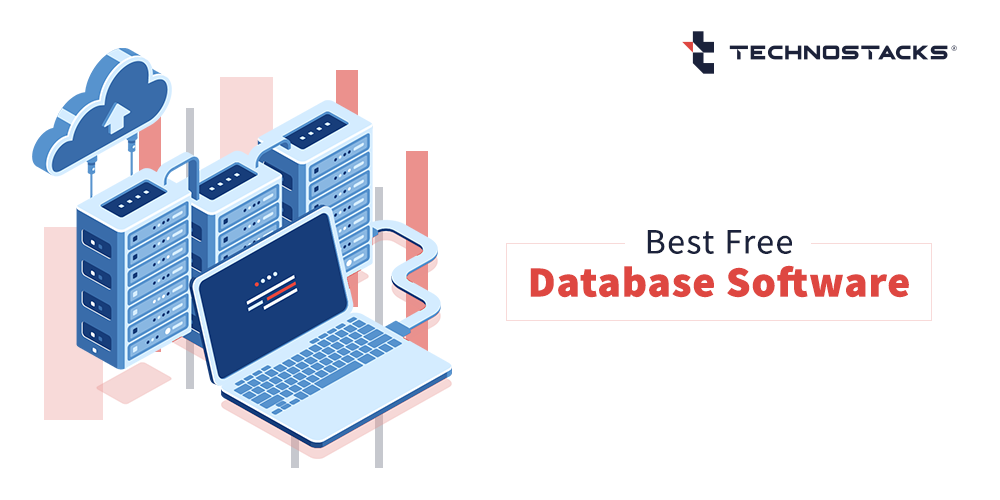Key Reasons To Select Django Framework For Your Next Project
There are fairly a few frameworks on the marketplace, each developed to enable diverse project requirements. For many organizations and individual projects, the Django framework is a simple preference as it is a trending web development tool.
However, why is that? What is Django exactly applied for? What sort of projects can it be opted for? Let us explore what Django is and why so many professionals globally leverage it and how you can do the same for your next set of development projects.
What is Django?
Django is an open-source framework for backend web applications based on the Python framework – one of the top languages for web development. The main goals of Django are flexibility, simplicity, reliability, and scalability.
Django has a complete naming system for all its components and functions, and it also has an admin panel that is considered easier to work with than Laravel.
History of Django Framework
Django framework was created by two programmers working for Lawrence-Journal-World in Kansas City. The newspaper needed an application to publish its news online. Still, eventually, the Django development creators realized that their solution could be turned into a publicly available framework. Once the framework had a community, the development took off, and the number of websites using Django grew exponentially.
Some of us use websites that are completely built on Django frameworks but do not even know about them. Our favorite Instagram is one such example. Every year hundreds of new applications are added to the already long list of Django websites.
Beginners in coding think that Django is merely a content management system. But in actuality, it is a software tool designed to build and run web applications. To understand the framework, you need to understand its name.
This framework owes its name to jazz guitarist Django Reinhardt, who could dazzle people with his skills even though two of his fingers were paralyzed due to an accident.
What are the Significant Goals of Django?
Django’s key goal is to ease the work and tasks for programmers. For the same, the Django framework leverages:
- The values of swift development, which means programmers can do more than one iteration at a time without initiating the complete schedule right from scratch.
- It uses the DRY philosophy, which means Don’t Repeat Yourself allows programmers can reuse present code and concentrate on the fresh one. As an outcome, it takes much less time to get the project to the marketplace.
- It backs scalability, so you can create apps that can easily manage immense traffic and large volumes of data sets.
- It offers great flexibility and works with most common databases, and enables leveraging a database that is more fitting in a specific project or even numerous databases at the same time.
Read More:- Why Use Python for Web Development?
Why Should Use Django for Web Development?
Django is used for web development because:
- Its simple syntax
- It has its web server
- A Model-View-Controller (MVC) core architecture
- Includes all essentials required to solve common cases, called ‘Batteries included.’
- Has an ORM or Object Relational Mapper
- HTTP libraries
- It considered as the best Python web development framework
- Middleware support
In addition, Django offers a dynamic CRUD (create, read, update and delete) interface, constituted with admin models and created through self-analysis. CRUD is leveraged to state the fundamental database commands, which means the interface enables viewing, altering, and enable search for needed data sets.
Some Django examples or websites using Django are:
- Instagram: A highly popular social network that interacts with a boundless deal of media information and user base engagements. Django facilitates the functionality that makes the web app work flawlessly, adds fresh features, and fixes problems in no time.
- NASA: They leverage Django for functional components and elements that need the most consistency. Their website is not as prevalent as Instagram, for instance, yet it manages higher-resolution imagery and regular traffic of 2 million views every month.
- Spotify: A large-sized media library with an immense volume of data that enables its user base to attend to music free or have an ad-free subscription. Spotify leverages machine learning technology, where Python is one of the finest selections. The creators selected to blend it with the Django framework.
- Dropbox: A precise cloud technology leveraged for file storage demands higher performance functionality and features. Django offers Dropbox with the required set of tools to offer sharing and synchronization functions with better scalability levels.
- Mozilla; One of the most prevalent web browsers and another web app that swapped from PHP to Python and thus to Django. Now, it is improved and manages immense traffic and multiple API hits.
- Reddit: Reddit is a precise web content platform where individuals ask their queries and questions, share ideas, and where posts are marketed based on a precise rating system. Reddit depends on Django for many of its functional competencies, such as servicing substantial user base traffic.
- The Washington Post: The organization leverages Django to manage its massive traffic, since the framework itself was built to enable and empower a digital newspaper. Numerous other digital periodicals also leverage Django.
- Pinterest: It has millions of active and dynamic user bases, manages massive amounts of media data, and yet maintains its user-friendly interface. Django being an open-source framework, the makers of Pinterest were able to adjust it to suit their requirements.
What is Django used for?
Similarly, the Django framework can complete numerous tasks and can be used to create:
● Client relationship management (CRM) systems
● Communication platforms
● Document admin platforms
● Content management systems for commercial and internal use
● Booking engines
● Algorithm-based generators
● Verification systems
● Emailing solutions
● Data analysis solutions and complex calculations
● Filtering systems with dynamically changing rules
● Machine learning
Top Reasons to Use Django Framework For Your Web Project
- It’s easy to learn Django
The Python programming language is easy to learn and one of the top picks for beginners in the world of coding. Most schools and colleges use this language to start the journey into coding. Because Python is a stable language and Django development inherits most of its key features, learning to code is easy if you know how to code using Python. - Perfect for SEO
Python frameworks are very well known for their human-readable code. This is an advantage, especially when ranking your website higher in search engine results. Using Django, you can easily generate a readable website with links that have the most relevant keywords and follow the best SEO practices.A domain name is just a ‘human-readable’ string that adds to a computer-friendly set of numbers, also known as an IP address. People generally fixate on the perfect domain name but neglect the URL slug. Django helps fix that.
Read More:- Reasons To Choose Python For Your Next Web Project - Enable cross-platforms
Django is an easy and portable framework that runs its code on multiple platforms such as Windows, Mac, Linux, and PC. This cross-platform nature of Django allows developers to get support from all production environments. The framework also has a layer called the Object-Relational Mapper or ORM between the developer and its database. With this layer, the whole project can be moved to other databases with a little change in the code. - Open-Source framework with large community support
Django is a free and open-source framework that is available on GitHub. There are more than 2k contributors, and more are joining every day. It is supported by a large community of Django programmers who help each other solve problems.
If you face any problem or are looking for some specific functionality of Django, then the community will be able to help you. There are plenty of ways to connect with the community – slack channels, mailing lists, workshops, blogs, documentation, meetups, and many other resources. - Batteries are included
Django is popular because the ‘battery included’ option helps users find everything to develop a completely fledged application. These include ORM, Authentication, session management support, HTML templating, middleware, URL routing, HTTP libraries, i18n, view layers, python compatibility, etc. The framework provides tools and tons of libraries for common use cases. This is huge as it allows Python developers to focus on things that matter more than reinventing the wheel. - Security features and functionalities
One of the best aspects of Django is that you can build the application at speeds faster and deliver without compromising the application’s security. The security features are enabled by the framework default. It is built-in protection for common security issues such as request forgery, cross-site scripting, SQL injection, and clickjacking. Django released the new security patches that happen quite often, and it responds immediately to the security alerts and vulnerabilities of other frameworks. - Built-in admin UI
In most frameworks, you need to code an admin panel, which takes a lot of time. Django offers a fully-featured interface that is generated automatically for every website or app you build.The admin panel is completely structured and allows developers to create/delete/update the users and other databases specific to your app or website. You can modify and customize the admin panel interface and add dashboards using third-party applications per your needs.
- Object Relational Mapper or ORM
The Django framework offers a completely functional ORM and is compatible with several databases. ORM is a library that helps developers interact with multiple databases and allows them to transfer data automatically from one database to another.
Technologies like greenDAO, Eloquent, and Yii AR handle the basic queries, but the developers will have to write out raw queries if the ORM fails to address the use case. This is not the case with the Django framework. It is built to handle database inquiries as well.
The Django implementation helps pull out the data and speed up the application process. You can also switch between multiple databases with fewer code lines. - Don’t Repeat Yourself (DRY):
In the world of programming, code-reusability or DRY principle is very important. This is especially for when code upgradation is required frequently. When you follow the DRY principle, you cannot use any existing codes and must avoid unnecessary lines of bugs, codes, and errors.
With this principle, you can get the best out of very little code, saving time as developers modify the code for any reason. Django follows the DRY principle and is designed so that you have to find options to violate the principles. - Scalability and reliability
In today’s world, every company worries about scalability. What if the website hits the scale and is required to handle heavy traffic or large information volumes? You then need a framework that can handle large amounts of data.
Django can tackle any size project, either in large-scale applications or small-scale websites. Django has a series of wired components and is ready to go by default. These are as per the requirement or solutions in an application, and development is scaled up or down by unplugging or replacing the components. - Availability of good documentation
Django provides well-structured documentation with example codes that are helpful in real-world applications and processes. The documentation is good for reference when building features or is stuck with some functionality issues.
Django Implementation – Best Practices
One of the most difficult tasks for a developer is understanding which project needs to be written in which language. This is because several programming languages can be used to give life to the project. What is important is to find a team that can implement your plans in the best way but in the shortest time frame.
Developers prefer using the Django framework because it is highly reliable, completely transparent, and has large community support. So, the next time you need a project completed fast, look at Django to see how well it connects with your plans.
Conclusion
There is doubt that Django is the best solution for your web development project. The demand of Django developers are increasing significantly and we will see more brands are accept this framework for their web project.
We at Technostacks, A leading Python development company, Offes scalable web development solution with Django framework. We have a team of dedicated web developers who can easily satisfy your project requirement with ease. Contact us for your Django web application development requirements.
Frequently Asked Questions on Choosing Django Framework
- Why should you choose Django?
Django is a high-level web framework that helps quickly develop secure and easy-to-maintain websites. Built by experienced backend developers, Django implementation takes care of all the hassles of web development to help users focus on their apps without reinventing the whole process. - What is Django used for?
Django is used to develop web applications and API backend applications for different websites, including highly customizable apps such as social media platforms. With this framework, you can emphasize writing your application without requiring to reinvent the same earlier stuff. - Why is Django popular?
Django is considered the second most popular Server side framework, right after Laravel, because of its ability to strike the right balance between enterprise features and rapid application development. Moreover, the security it offers is one of Django best practices. - Why is Django the best framework?
Django is considered one of the best frameworks as it helps create database-driven websites. Django uses the DRY principle, which makes it time-efficient. There is no need to rewrite codes that already exist because, with Django, you can assemble them like a Lego set. - What are the advantages of using Django to develop a web application?
Some of the advantages of using Django to develop a web application are:1. It has a built-in admin UI
2. Offers a large community support
3. Has cross-platform options
4. It is fast, scalable, and reliable
5. It has good documentation easily available - Is Django the best framework?
Django is considered the best Python development company framework and can be used for any scale of projects, large or small. It quickens the development procedure effectively, as you do not have to program everything right from scratch. - Which are the websites built using Django?
Some of the most popular websites built using Django are:● Spotify
● The Washington Post
● New York Post
● The Guardian
● Mozilla
● Pinterest - Is it good to choose Django for backend web applications?
Django is a full-stack framework that includes all the features required to build a website by default instead of separate libraries. It is a free and open source framework that is well-suited with key operating systems and databases. It is user-friendly, safe, clean, and resourceful. - What are the features of Django?
Significant features of Django are:● Good documentation
● Highly scalable
● Versatile in nature
● Provides rapid development
● Highly -secured features
● Provides Admin UI - Is Django good for big projects?
Yes, Django is suitable for big projects. It is relatively easy to organize this framework, and it also helps to add apps to self-contained projects. If the app requires to process an immense number of requests, Django facilitates sustaining precise connections right to the explicit database. - Is Django good for real-time applications?
Django does not back real-time applications in the current scenario as it is tough to alter internal structures that are quite rigid. So, you may require to leverage other frameworks such as aiohttp to enable the same.








